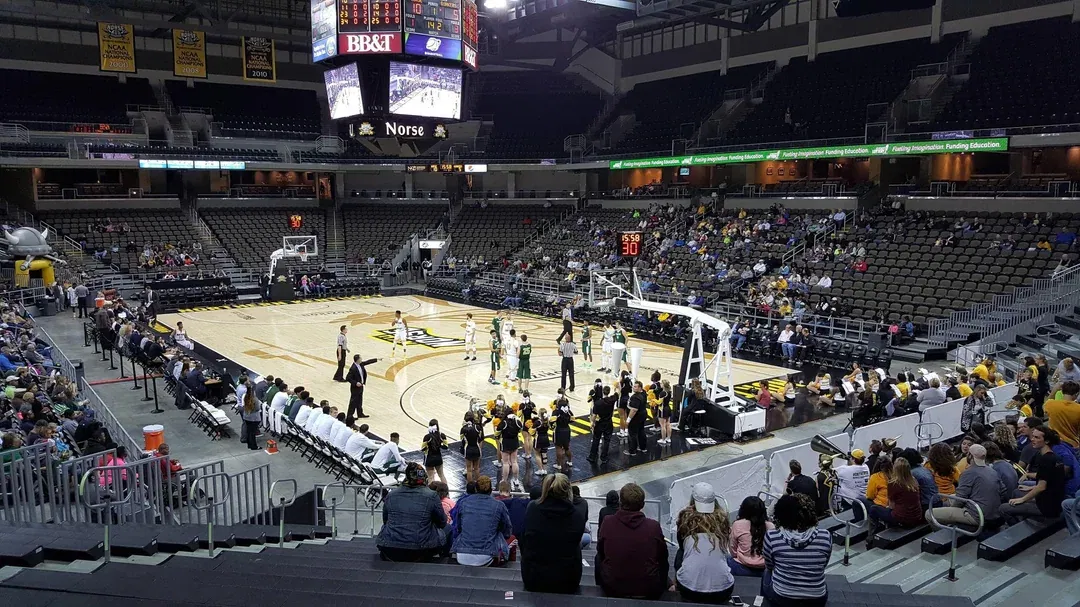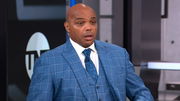
Imago
Mandatory Credits: @r/CollegeBasketball/Reddit

Imago
Mandatory Credits: @r/CollegeBasketball/Reddit
As the new season of college basketball is around the corner, the hype is like never before. With all the top teams vying for the championship and the underdogs trying to upset the big-time teams, we are in for a season full of electrifying performances. While the players and their performances are set to light up the hard court, the fans will also have a big role to play. Their role will, of course, be setting to fill up the arenas and create an atmosphere that can make the opponents feel like they’re up against more than just five players on the court.
Watch What’s Trending Now!
If the fans are the lifeline of the teams, the arena is their home. While to ordinary folks an arena may be just a building, for the passionate fans among us, it is the soul of the team. This is why it is highly important to build an arena that complements the fan base’s passion. The size, the design, and how close the fans are to the court are some of the factors that make an arena historic. With all that said and done, let’s look are some of the largest arenas in the college basketball landscape.
ADVERTISEMENT
Which arenas are the largest in college basketball?
JMA Wireless Dome (Carrier Dome) – Syracuse University
- Capacity- 35,446
- Field Name- Jim Boeheim Court
- Opened- September 20, 1980
- Home Team- Syracuse University
ADVERTISEMENT
KFC Yum! Center- University of Louisville
- Capacity- 22,090
- Field Name- Denny Crum Court
- Opened- October 10, 2010
- Home Team- University of Louisville
ADVERTISEMENT
Dean E. Smith Center- University of North Carolina
- Capacity- 21,750
- Field Name- Roy Williams Court
- Opened- January 18, 1986 (last renovation in 2018)
- Home Team- University of North Carolina
Thompson-Boling Arena- University of Tennessee
- Capacity- 21,678
- Field Name- The Summit
- Opened- December 3, 1987
- Home Team- University of Tennessee
ADVERTISEMENT
Rupp Arena- University of Kentucky
- Capacity- 20,545
- Field Name- Cawood Ledford Court
- Opened- November 27, 1976
- Home Team- University of Kentucky
ADVERTISEMENT
Capital One Arena- Georgetown University
- Capacity- 20,356
- Opened- December 2, 1997
- Home Team- Georgetown University
Madison Square Garden- St. John’s University
- Capacity- 19,812
- Opened- February 11, 1968 (Last Renovated in 2013)
- Home Team- St. John’s University
ADVERTISEMENT
PNC Arena- North Carolina State University
- Capacity- 19,722
- Opened- October 29, 1999
- Home Team- North Carolina State University
ADVERTISEMENT
Bud Walton Arena- University of Arkansas
- Capacity- 19,368
- Opened- November 29, 1993
- Home Team- University of Arkansas
Marriott Center- BYU
- Capacity- 19,000
- Opened- 1971
- Home Team- BYU
ADVERTISEMENT
Why does arena size matter for college basketball?
For as long as one can remember, it has seemed that bigger is better. In the college basketball landscape as well, a bigger arena is always a big advantage to have. Having a bigger arena allows a team to pack the arena and have fans screaming at the top of their lungs to cheer (or boo against the opponents) for their home team. This creates an atmosphere that can give the home team momentum and an added boost to carry the team to wins. While it’s just five players on the court at a time, when the fans are cheering with so much passion, it feels like you have an extra boost to win.
Having a larger arena is also a great asset when recruiting new talent. It’s no secret that everybody wants to be part of a historic program. If your arena is shrouded in history and famous for an electric environment, a recruit can be swayed to commit to your program over your rivals. A bigger arena will also result in increased revenue. From ticket sales to merchandise sales, everything can add to the program’s income. This additional income will further help the college basketball programs to provide better facilities and hire better staff that will not only help the team compete well but also prepare the players for a career in the professional leagues.
Top Stories
Mike Vrabel Threatens to Bench Locker Room for Super Bowl After Patriots Win vs Broncos

“Rest in Peace”: Charles Barkley Sends Prayers to NBA Legend Who’s Still Alive

Scottie Scheffler Joins Tiger Woods and Jack Nicklaus With Remarkable $9.2M PGA Tour Event Victory

Dana White Shares Update On Hospitalized Paddy Pimblett After UFC 324

Dana White Confirms FBI Involvement as UFC 324 Controversy Deepens

Paramount’s UFC Launch Under Fire After Kourtney Kardashian’s Husband Sparks Backlash

ADVERTISEMENT
ADVERTISEMENT
ADVERTISEMENT